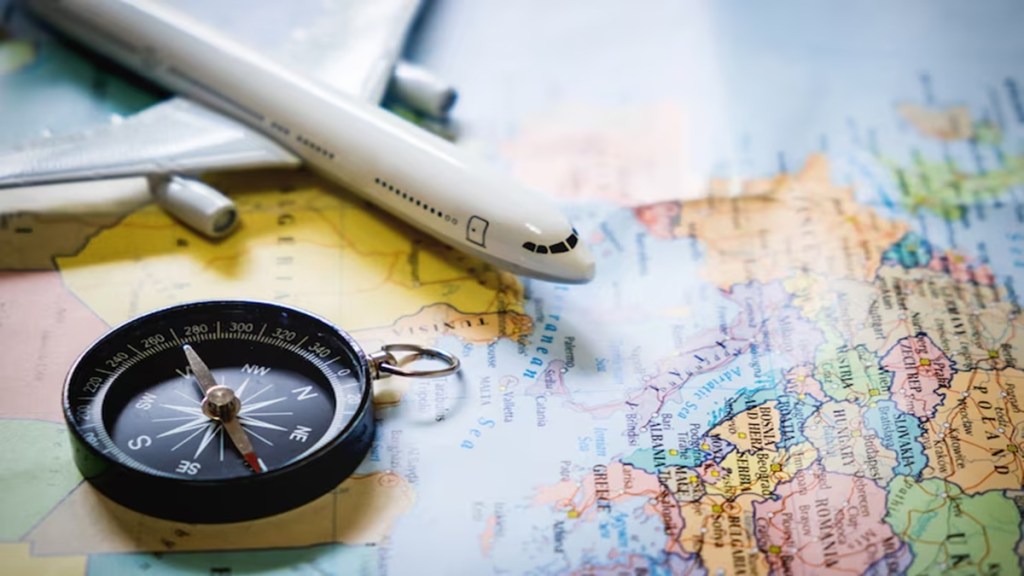Travel company Thomas Cook and SOTC on Thursday launched India’s first multi-modal, multilingual, voice-enabled generative AI (GenAI) advisor called Dhruv for business travellers to book hotels, flights and easy payments.
This 24/7 availability for uninterrupted assistance to global enterprises reduces response time by up to 60%, improving efficiency. Dhruv supports over 20 languages, including Hindi, Marathi, Tamil, Telugu, Spanish, German, Greek and Portuguese. “Innovation and customer-centricity are at the core of this first agentic voice-enabled, generative-AI voice solution, ensuring exceptional customer experience,” said Madhavan Menon, executive chairman, Thomas Cook (India), at the launch.
This comes at a time when demand is positive for business travel spend in India, which is projected to reach 120% of its pre-Covid business travel spend by 2027, as per Indiver Rastogi, president & group head, global business travel, Thomas Cook (India) and SOTC Travel.
India’s corporate travel sector is projected to grow to $20.8 billion by FY30. The growth is driven by tech-enabled, personalised and sustainable solutions, according to a 2024 Deloitte report. “The sector is driven by significant rise in increasing MICE travel to India, increased international summits, increasing contribution from SME segment, rising business activities in Tier II and beyond, which are slowly becoming large manufacturing or GCC hubs,” said Avinash Chandani, partner, Deloitte India.
The biggest contributors fuelling this growth are IT, BFSI, and manufacturing industries, which collectively account for over 86% of total business travel spend among India’s top 100 listed firms, said Ramalingam S, president of Cox & Kings. “India is increasingly becoming home to UHNIs and global corporations. As this number rises, the scope of corporate travel is poised for significant growth,” said Ramalingam.
Both Thomas Cook (India) and SOTC Travel have also observed strong demand for business and premium economy-class bookings, driven by factors such as the rising affluence of India’s middle class, evolving corporate travel policies focused on employee well-being, and a broader shift toward enhanced travel experiences. “While international routes continue to dominate demand for business and premium economy travel, we are witnessing a steady rise in domestic bookings, particularly on high-traffic routes connecting key business hubs,” said Rastogi. “What’s noteworthy is that, as premium cabin prices stabilise, corporate policies are increasingly adopting business class for a wider range of employees, a benefit once reserved solely for senior executives and CXOs,” he added.
Travel companies have also revamped their strategies to meet the needs of new-age travellers, who prefer AI-powered chatbots, voice-assisted booking systems and real-time data analytics. “This culture has significantly seen a rise, especially post-pandemic, as the work model has led to the rise of ‘bleisure travel’ where employees combine business and leisure,” Ramalingam added.
“With increasing trend of bleisure, extended stays and Gen Zs joining the workforce, hospitality players are adapting to bring customised offerings, wellness programmes, local experiences and sustainability focused initiatives, whereas travel companies are leveraging technology to offer features like integrated booking and payments platform, advanced reporting, and analytics solutions to improve customer experience for large corporate employees,” Chandani added.
Mumbai, Delhi-NCR and Bengaluru remain the most popular business travel destinations, while cities like Ahmedabad, Vadodara, Bhubaneswar and Lucknow are emerging as new corporate hubs. The range of travel expenditure, from small and mid-size organisations (up to 250 employees) can reach Rs 1 crore per year, while large organisations (250-5,000 employees) allocate Rs 10 crore annually towards travel expenses, estimates Deloitte.
With a burgeoning middle-class constituting over 65% of the population within the crucial consumer cohort and working age group of 18-55 years, there is significant potential for increased spending and consequent consumption growth within the economy, indicating a propensity for people to travel more as discretionary spending rises. Airbnb’s new data shows that there is a surge in domestic bookings, growing by more than 30% year-over-year. It says urban centres like Bengaluru, Delhi-NCR, Pune and Hyderabad have shown impressive growth, driven by work travel, events and conferences, and their proximity to several tourist destinations.
“Asia has continued to outperform, with a significant 44% increase in revenue as announced in our mid-year results FY24. This is fuelled by strong performance across Southeast Asia, India, and the re-opening of China, hence we are witnessing growth opportunities in India and Southeast Asia in FY25. A strong demand for business travel will continue in 2025, with increased demand for AI to enhance customer experience and assist people for optimising experience,” said Bertrand Saillet, MD, FCM Travel Asia.
According to the 2025 Global Meetings and Events Forecast from American Express Global Business Travel (Amex GBT) forecast, 66% of meeting-planning professionals expect meeting spending to grow in the future.
